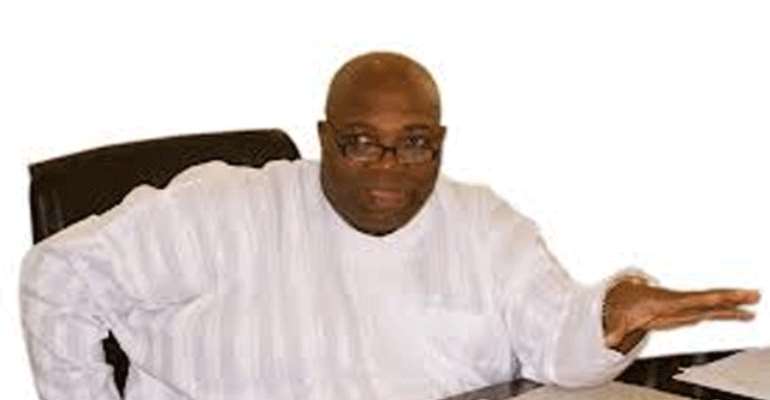FG and $15m arms procurement saga - National Mirror

The Presidency, according to recent reports, spoke up on the running controversy, namely: the seizure by South African authorities of Nigeria's $15m meant for the purchase of arms. On September 5, two Nigerians and an Israeli colleague of theirs were picked up in South Africa while they were attempting to smuggle $9.3m cash conveyed in a chartered private jet to that country. Roughly three weeks thereafter, an additional $5.7m was seized when a South African company purportedly contracted to buy the arms tried to pay back the money for failing to meet its part of the deal.
Senior Special Assistant to President Goodluck Jonathan on Public Communication, Dr. Doyin Okupe, was reported as explaining lately that 'the Nigerian government could not share all information about the issues at stake because they were security matters.' 'It is an issue which we cannot just bring to (the) public domain. For goodness sake, we need to have some quiet innocent support… These are very serious national security affairs and running a government is not the same thing as running a Shoprite, where everything is on the table and on display. There is nothing shady about the South African deal and the Office of the NSA (National Security Adviser) has done very well because at the appropriate time, they came in that, 'yes, this money belongs to us and this was what it was meant for;' that explanation itself was okay. There is no hanky panky on this matter', Okupe said.
The snort response of the FG to the arms-buying embarrassment is, however, not strange, considering that anything that has to do with security in most nations is conducted in near absolute secrecy. In Nigeria of the present day, the secrecy could be likened to the darkness of the dead of the night, when the moon is on recess. The Boko Haram insurgence and ever increasing crime wave nationwide can easily be cited as reasons why arms should be secretly procured from most ridiculous and curious sources.
Experts, however, view public procurement as a key function of any government, because it is an effective, efficient and honest process crucial to ensuring that scarce public resources (funds especially) are well spent; and that requisite public projects for which procurements are carried out are truly accomplished. They also say that corruption, inefficiency and waste are the bane of public procurement in most nations, globally speaking. Military procurement is said to be worse, as arms procurement procedures locally or internationally provided virtually unquestionable paths for massive corruption and waste of public funds.
In the case of Nigeria, the Public Procurement Act of 2007 established the Bureau of Public Procurement (BPP) as the regulatory authority responsible for the monitoring and oversight of public procurement; harmonizing existing government policies and practices by regulating, setting standards and developing the legal framework and professional capacity for public procurement in the country. Indeed, the core objectives of the BPP was spelt out as ensuring economic efficiency; competition (in other words, providing level playing ground for all strata of bidders for contracts); value for money; and transparency.
In a three-day procurement awareness seminar the Defence Headquarters organized earlier in the year for various personnel of the Nigerian Armed Forces responsible for procurement, which had as its theme : 'Understanding Public Procurement Policy Towards Efficient Defence Procurement in Nigeria', the Chief of Defence Staff (CDS), Air Marshal Alex Badeh, who was represented by Air Vice Marshall A. A. Iya, Chief of Policy and Plans at the Defence Headquarters, paid glowing tributes to the Director- General of the Bureau of Public Procurement, Emeka M. Eze, an engineer, and his staff for what he called the 'cordial relationship (that existed) between the DHQ (Defence Headquarters) and the BPP in our collective efforts to be prudent in defence procurement to achieve national defence objectives'.
It would seem, however, that Bardeh's commendation of the BPP was mere lip service, going by the South Africa arms scandal. Indeed, the leadership of the BPP did say in 2009 that 90 percent of bribes in Nigeria's public sector could be traced to the procurement system; and that procurement in the military was exceptionally 'problematic'.
For these reasons and more, the FG ought to have averted any grain of suspicion in it rush from arms supply from South Africa, especially at a time when it was in search of $1bn loan to fund security imperatives; and when the office of the NSA claims it is underfunded in relation to tackling the challenges posed by insurgency in parts of the North. The common public impression is that the arms deal is suspect; and Nigerians wonder if that is how the $1bn security loan granted the Presidency by the National Assembly would be gradually frittered away.
